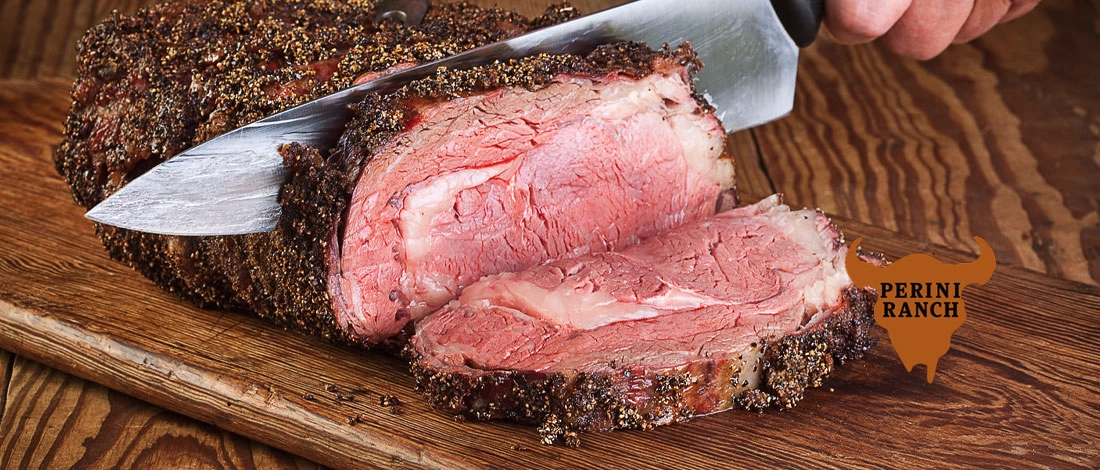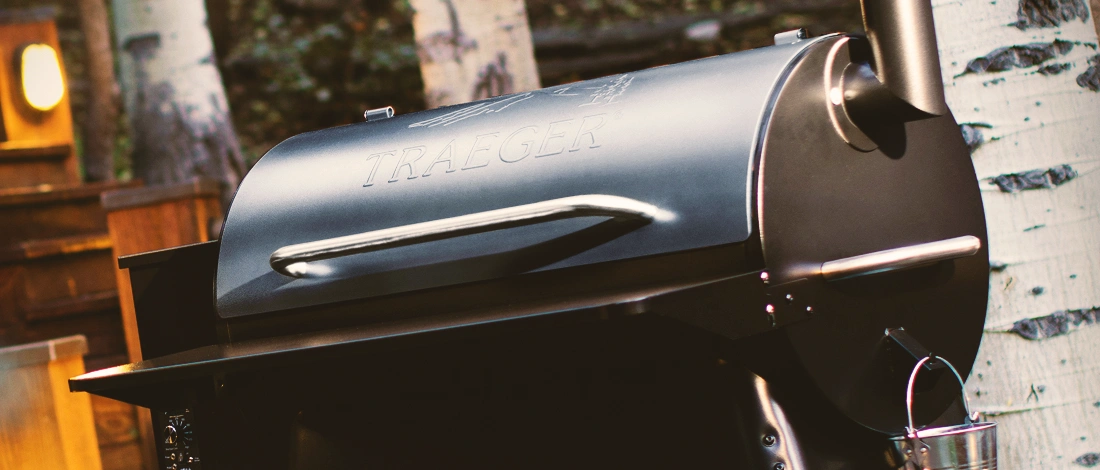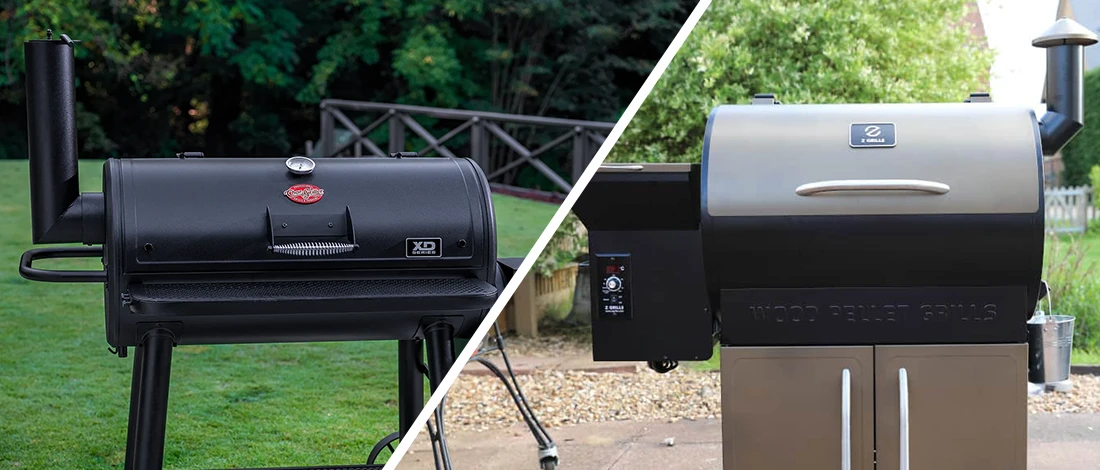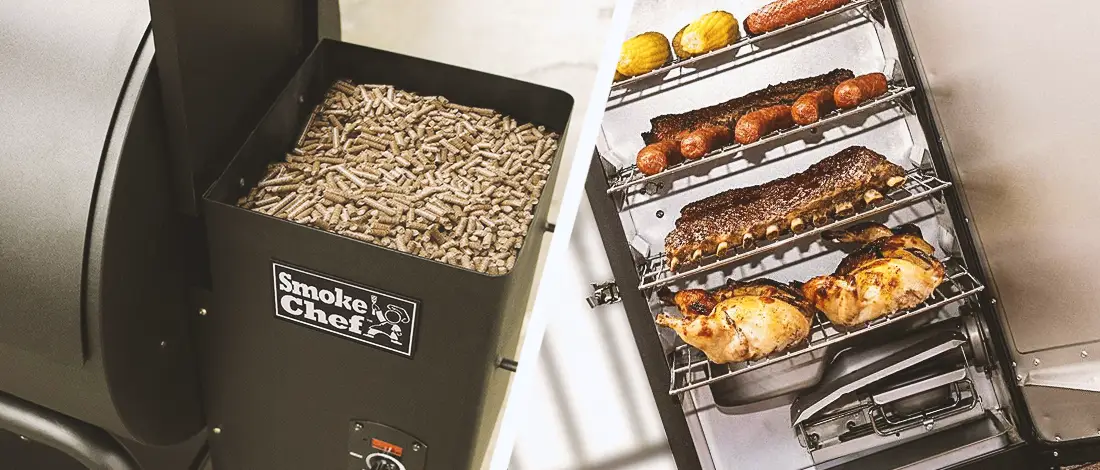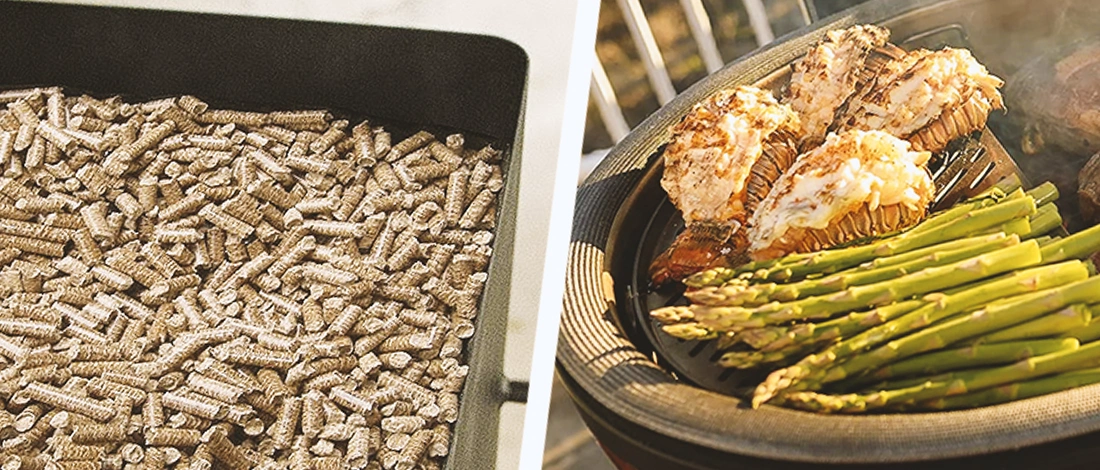Wood pellet smokers and charcoal smokers are extremely popular with meat lovers everywhere, and I’m no exception.
At Carnivore Style, we know that choosing the right smoker can make a big difference in your cooking experience and results.
Over the past decade, I’ve tried several different pellet and charcoal smokers and noticed that they differ in some ways.
Today, I’ll share valuable insights into their differences, costs, performance, flavor, and even health considerations.
Quick Summary
- Pellet and charcoal smokers differ in fuel type, cost, health considerations, cooking temperatures, flavor, cleanup, and ease of use.
- Pellet smokers are easy to use, offer a unique flavor, and are easy to maintain, but they are more expensive and the flavor may not suit everyone.
- A 2020 study in the National Library of Medicine studied the environmental and health concerns linked to the use of charcoal briquettes and lump charcoal for grilling, demonstrating that the majority of tested products failed to meet quality standards due to high contaminant levels, which significantly impacts harmful emissions [1].
- To help you find out the most suitable charcoal smoker, we’ve compiled a list of 10 best charcoal smokers on the market.
6 Differences between a Wood Pellet Smoker vs. Charcoal Smoker
The main difference between pellet and charcoal smokers is the fuel they use. However, there are a few additional points to keep in mind too.
1. Cost and Versatility
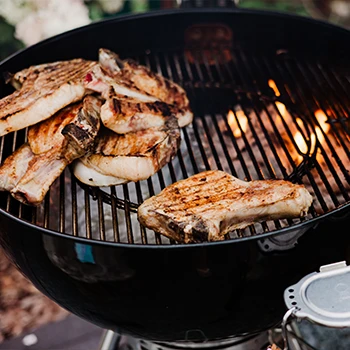
A charcoal smoker is generally less expensive and more versatile. If you want to be able to grill hamburgers on the same unit, one of these might be for you.
A charcoal smoker is more accessible and affordable. Plus, they can reach a higher cooking temperature to sear meat. They are more budget-friendly and provide more variety to grilled foods.
Most pellet grills come with a smoker box on one side as an additional feature. Other charcoal smokers are stand-alone products.
Pellet grills tend to be a more significant investment than charcoal grills, with prices typically ranging from $500 to over $2000. The higher-end units of either type can be pricey, though.
Wood chunks burn quicker than charcoal and are a bit more expensive overall, which means the operating costs for a wood pellet smoker are higher.
A 20-pound bag will run you about $20. You will probably go through 1 to 3 lbs. of pellets per hour.
By comparison, a 15-pound bag of charcoal briquettes (which costs in the $18-$20 range) should last at least 12-15 hours.
There is no need to buy the more expensive lump charcoal since it tends to burn hotter anyway.
Replacing the existing grill grates or other parts is a big consideration for pellet smokers since they have more mechanical parts that may eventually break or deteriorate.
2. Health Considerations
Another consideration is how healthy wood pellets are. Smoking meat is a great way to reduce fat content in your diet. According to a 2023 study published in the National Library of Medicine, reducing fat tends to decrease the risk of cardiovascular morbidity and mortality [2].
You also avoid the carcinogenic dangers of burning oils dripping into an open flame, which so often happens while grilling.
Always ensure you buy good quality wood pellets. Cheap brands could potentially contain compounds that you want to avoid.
The high-quality protein you get from eating smoked meat is also great for those losing weight. A 2015 study published in the National Library of Medicine has demonstrated that higher protein diets may spare lean body mass during weight loss [3].
3. Cooking Temperatures
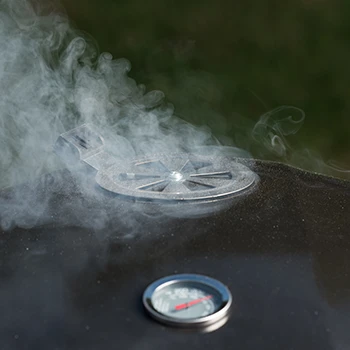
Charcoal smokers can achieve higher temperatures because charcoal fire burns hotter, so the food can also be seared.
This requires high temperatures of 500°F and above. If you love a seared steak hot off the grill and enjoy smoked meat from the same unit, many charcoal smokers make this possible.
It’s easy to create a hotter fire with a charcoal smoker.
4. Flavor
One of the most important differences is the taste created by the smoke. Many people love the familiar char flavor.
However, wood pellet smokers create a strong wood flavor unlike charcoal smokers, and different types of pellets can also vary the taste. While it’s possible to add some pellets to a charcoal smoker, the flavor just won’t be the same.
You can choose between apple, cherry, hickory, mesquite, and whiskey barrel. My favorite to get the most flavorful taste out of my pellet smoker is hickory hardwood pellets. On top of that, these burn incredibly well and make an excellent combo when slow-smoke meat like pork shoulders and ribs.
“Using smoke is a great way to enhance the natural flavors of the dish, as well as drive some of the flavors of the smoke itself into the dish.”
- Dmitry Rodov, Chef, Duet Restaurant, NYC
5. Clean Up
Charcoal smokers require more clean-up. You’ll need to remove the ashes after each use.
You’ll also need to remove the carbon on the grates and inside the burn area.
On the other hand, a wood pellet smoker burns cleaner and doesn’t create as much mess for you to clean.
6. Ease of Use
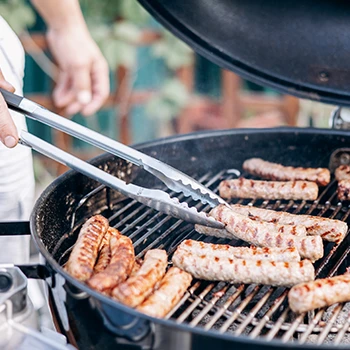
Charcoal grills need more work and involvement from you. You have to start the coal and monitor the temperatures while adding wood chunks.
Pellet smokers are more hands-off. They have an auto-feed system, so there’s no need to add more pellets.
Simply turn on your pellet smoker and set the temperature range. These smokers have temperature control, so there aren’t extreme variations.
Pros of Pellet and Charcoal Smokers

There are lots of things to love about these simple smokers. Let’s look at some benefits.
Pros of Pellet Smokers
- Ease of use. Taste and ease of use head the list of the reasons you may love a pellet smoker. Most wood pellet smokers have an electric auger system that feeds the pellets in at a consistent rate to maintain the desired cooking temperature. This means practically hands-free smoking.
- Flavor. The distinctive flavor is what makes pellet smokers shine. There’s just no better way to get the wood smoke flavor into the meat.
- Easy maintenance. These smokers are also easy to clean up, with minimal ash.
Pros of Charcoal Smokers
The pros of charcoal smokers also have to do with flavor and simplicity.
- Ease of use. Charcoal smokers are not much more complicated than a simple grill. Lighting the charcoal and adjusting airflow to maintain higher or lower temperatures is about all there is to do.
- Accessibility. Charcoal is easy to obtain almost anywhere and is quite economical, making it ideal for outdoor cooking.
Cons of Pellet and Charcoal Smokers

Let’s take a quick look at the downsides of these smokers.
Cons of Pellet Smokers
- A distinct flavor. Pellet smokers will always deliver wood pellet smoked flavors to the meat. If that’s not for you, you probably won’t like a pellet smoker.
- Cost-effectiveness. The pellets burn more quickly than charcoal briquettes, so the initial cost of operation for pellet smokers tends to be a bit higher.
Cons of Charcoal Smokers
- A strong flavor. Charcoal cooking and smoking create a distinctive flavor of their own. If you don’t like that charcoal taste, you probably won’t like cooking meat in a charcoal smoker.
- More clean-up. The other main drawback is clean-up. Most charcoal grills are a bit messy, creating a lot of ash and soot. So, you will spend more time cleaning up after using a charcoal smoker.
Related Articles:
Electric Vs. Charcoal Smoker
When comparing electric and charcoal smokers, it becomes clear that electric smokers are ideal for newcomers to smoking thanks to their automated temperature control. They maintain consistent temperatures, making them user-friendly. In contrast, charcoal smokers demand more skill in temperature control but offer equally reliable results.
Charcoal smokers excel in food quality, delivering crispy skin and excellent moisture retention. Moreover, they create a more complex flavor profile due to the process of charcoal burning. Electric smokers, on the other hand, have a limited temperature range and are specialized for smoking, making them less versatile.
While electric smokers are convenient due to their reliance on electricity, charcoal smokers require more maintenance but provide a broader range of cooking options, including grilling.
FAQs
Are Pellets Cheaper Than Charcoal?
Yes, pellets are cheaper than charcoal because they burn more quickly, so they cost more per hour to burn than charcoal.
Can I Mix Charcoal and Pellets?
You can mix charcoal and pellets to create a blend of flavors. Just add a few pellets on top of already lit briquettes. Using charcoal briquettes in a pellet smoker is also possible if you light them first.
At Carnivore Style, we want to help you pick the smoker that fits your style and brings out the best in your meat. Explore our other guides and reviews to get the most from your carnivore cooking setup.
References:
- https://pubmed.ncbi.nlm.nih.gov/32777507/
- https://www.ncbi.nlm.nih.gov/books/NBK553097/
- https://pubmed.ncbi.nlm.nih.gov/25757894/


